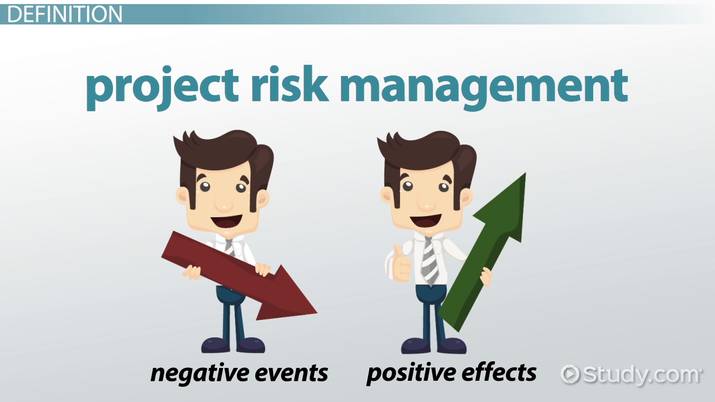
Experiential learning is the best method to gain knowledge about the various skill levels of human resources. Practical experience will give you the opportunity to learn more about HR. You'll also be more confident in your day-today responsibilities. You can also find out more about HR through reading or by using tools. You will improve your skills through practice. If you'd like to improve your skills in HR, bookmark relevant web pages with CTRL or Command + D. If you're looking for team-building tips, LinkedIn is a great resource.
Niveaus of human resource skills
In a multinational company, it is important for a human resources professional to understand the different cultural norms in the workplace. Indian culture encourages promotions every year, while Western culture promotes people every three - five years. Chinese workers often spend Chinese New Year holidays in China. They may not return back to their factory until the holiday has ended. HR professionals need to be aware of cultural differences.
These soft skills are not enough. HR professionals must be able make quick decisions and protect the company's interest. These decisions must be made without discrimination and must be fair to employees. Many employees are afraid of asking for personal time because they are worried that their managers will find them uncommitted, lazy, irresponsible, etc. A human resource professional should be able manage these employees in a fair, timely way.

Communication skills
It is essential that you have excellent communication skills to be a successful HR professional. Although it is difficult to master these skills on your personal level, you can attend a communication course to enhance your abilities. You will be able to develop professional and interpersonal skills and you will learn how to communicate effectively with different types of communication styles. In the course of the course, you will learn how to deal with conflict and influence others.
HR professionals need to be able and willing to listen to employees. Sometimes these informal conversations lead directly to ideas and improvements for policies. If employees are constantly complaining about a policy, it might be time to reconsider it. To develop your communication skills, you must be organized and show a desire to learn more about your employees. If you are not comfortable with writing, try bookmarking a website to save it to your computer.
Organizational skills
To succeed in any industry, you need to have good organizational skills. Including them on your resume will help increase your chances for landing a job. Time management, managing meetings, keeping track of office supplies, and creating cross-team documents are some of the most important organizational skills. You must also be a self-starter, which is another important skill. It is not enough to have a resume that demonstrates your organizational skills. These skills should be demonstrated throughout the interview process.
Your organizational skills can be demonstrated in many ways, including on your resume, cover letter, and during interviews. The required skills will depend on the kind of job you're applying for, and your skills should be relevant to each. List all your skills in your resume and work history. Then, in your cover letters, highlight the ones you are most proficient at. You can also make a powerful impression with your skills during the interview process.

Emotional intelligence
If you're looking to improve employee engagement and productivity, consider investing in emotional intelligence training. This skill is highly valuable to companies, as it allows employees to cope better with work-related stress. Human resources professionals can help employees increase their emotional intelligence through training programs or other resources. Read on to learn more about the benefits of emotional intelligence training. These programs are not just for HR professionals. They can also benefit everyone at your company.
Intuition motivation is a key component of emotional intelligence. People with high EQ are more likely to set goals for themselves. They're also more likely to persist and achieve their goals. This type of personality is common in high-achieving individuals and it can be learned. Many companies offer training to help employees develop this skill. Here are some strategies to develop emotional intelligence.
FAQ
What does Six Sigma mean?
Six Sigma uses statistical analysis to find problems, measure them, analyze root causes, correct problems, and learn from experience.
The first step is to identify the problem.
Next, data are collected and analyzed in order to identify patterns and trends.
The problem is then rectified.
Finally, data is reanalyzed to determine whether the problem has been eliminated.
This continues until the problem has been solved.
What is TQM?
The industrial revolution was when companies realized that they couldn't compete on price alone. This is what sparked the quality movement. They had to improve efficiency and quality if they were to remain competitive.
Management realized the need to improve and created Total Quality Management, which focused on improving all aspects within an organization's performance. It included continuous improvement processes, employee involvement, and customer satisfaction.
How do you define Six Sigma?
People who have worked with statistics and operations research will usually be familiar with the concepts behind six sigma. It can be used by anyone in any business aspect.
This requires a lot of dedication, so only people with great leadership skills can make the effort to implement it.
What is Kaizen?
Kaizen is a Japanese term which means "continuous improvement." This philosophy encourages employees to continually look for ways to improve the work environment.
Kaizen is based on the belief that every person should be able to do his or her job well.
What are the three basic management styles?
The three basic management styles are: authoritarian, laissez-faire, and participative. Each style is unique and has its strengths as well as weaknesses. What style do you prefer? Why?
Authoritarian - The leader sets the direction and expects everyone to comply with it. This style is best when the organization has a large and stable workforce.
Laissez-faire - The leader allows each individual to decide for him/herself. This style is best when the organization has a small but dynamic group.
Participative - The leader listens to ideas and suggestions from everyone. This is a great style for smaller organizations that value everyone.
What are management concepts, you ask?
Management Concepts are the principles and practices managers use to manage people and resources. These topics include job descriptions, performance evaluations and training programs. They also cover human resource policies, job description, job descriptions, job descriptions, employee motivation, compensation systems, organizational structures, and many other topics.
Statistics
- 100% of the courses are offered online, and no campus visits are required — a big time-saver for you. (online.uc.edu)
- Your choice in Step 5 may very likely be the same or similar to the alternative you placed at the top of your list at the end of Step 4. (umassd.edu)
- The average salary for financial advisors in 2021 is around $60,000 per year, with the top 10% of the profession making more than $111,000 per year. (wgu.edu)
- Hire the top business lawyers and save up to 60% on legal fees (upcounsel.com)
- This field is expected to grow about 7% by 2028, a bit faster than the national average for job growth. (wgu.edu)
External Links
How To
How can you implement the Kaizen technique?
Kaizen means continuous improvement. Kaizen is a Japanese concept that encourages constant improvement by small incremental changes. This is a collaborative process in which people work together to improve their processes continually.
Kaizen is one method that Lean Manufacturing uses to its greatest advantage. Employees responsible for the production line should identify potential problems in the manufacturing process and work together to resolve them. This increases the quality of products and reduces the cost.
Kaizen is an approach to making every worker aware and alert to what is happening around them. So that there is no problem, you should immediately correct it if something goes wrong. It is important that employees report any problems they see while on the job to their managers.
Kaizen has a set of basic principles that we all follow. Start with the end product, and then move to the beginning. We can improve the factory by first fixing the machines that make it. Then, we fix the machines that produce components and then the ones that produce raw materials. Then, we fix those who work directly with the machines.
This approach is called 'kaizen' because it focuses on improving everything steps by step. We finish fixing the factory and then go back to the beginning. This continues until we achieve perfection.
To implement kaizen in your business, you need to find out how to measure its effectiveness. There are many ways you can determine if kaizen has been implemented well. One way is to examine the amount of defects on the final products. Another way to find out how productive your company has been since you implemented kaizen is to measure the increase in productivity.
To determine if kaizen is effective, you should ask yourself why you chose to implement kaizen. It was because of the law, or simply because you wanted to save some money. Did you really think that it would help you achieve success?
Let's say you answered yes or all of these questions. Congratulations! Now you're ready for kaizen.